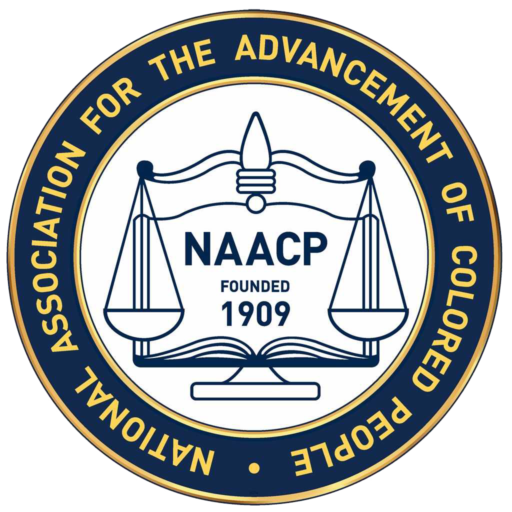Issues
Education
The NAACP works to ensure that every disadvantaged student and student of color graduates ready for college or a career by ensuring access to great teaching, fair discipline, equitable resources and challenging curriculum. We are dedicated to eliminating the severe racial inequities that continue to plague our education system. Our ultimate goal is that every student of color receives a quality public education that prepares him or her to be a contributing member of a democracy.
To achieve these goals, the Education Committee of the national board, in concert with education chairs and leaders from across the Association, have settled upon a four-prong strategy to improve educational achievement for disadvantaged students:
- Increasing Resource Equity: Target funds to kids in need
- Ensuring College & Career Readiness: A path to success after graduation for all students
- Improving Teaching: Growing our own great teachers now in underserved communities
- Improving Discipline: Eliminate zero tolerance; keep kids in school* All applied to turnaround schools
Health
The mission of the NAACP is to ensure equal political, educational, social, and economic rights for all persons and to eliminate race-based discrimination. This mission includes a focus on the right of African Americans and other people of color to have optimal health outcomes and access to timely, quality, affordable health care. African Americans continue to have the highest incidence, prevalence and mortality rates from chronic diseases like cardiovascular disease, diabetes and obesity, and issues like HIV/AIDS continue to overwhelm the Black community more so than any other racial or ethnic group.
The NAACP is committed to eliminating the racial and ethnic inequities that exist within our healthcare system that undermine communities of color, their life opportunities and their ability to contribute fully to the common good.
Fighting for Democracy
The NAACP, along with our half-million adult and youth members throughout the United States, are frontline advocates committed to raising awareness for political, educational, social and economic equality of minority group citizens in the electoral process. With approximately 2,000 adult branches, youth councils, and college chapters in 49 states, 5 countries and the District of Columbia, the NAACP is actively engaged in increasing the African American responsiveness of citizens to be fully engaged in the democratic process.
Environmental Injustice
Environmental injustice, including the proliferation of climate change, has a disproportionate impact on communities of color and low income communities in the United States and around the world. The NAACP Environmental and Climate Justice Program was created to support community leadership in addressing this human and civil rights issue.
In the past, and to some extent still now, when people think of environmentalism, they often think of saving the whales or hugging trees! When folks think about climate change, what often comes to mind are melting ice caps and suffering polar bears. Historically, American society has failed to make the connection in terms of the direct impact of environmental injustices, including climate change, on our own lives, families, and communities, all of whom depend on the physical environment and its bounty.
Race is the number one indicator for the placement of toxic facilities in this country. Toxic facilities, like coal fired power plants and incinerators, emit mercury, arsenic, lead, and other contaminants into the water, food, and lungs of communities. Many of these same facilities also emit carbon dioxide and methane – the #1 and #2 drivers of climate change. At the same time not all are equally impacted. For example, race – even more than class – is the number one indicator for the placement of toxic facilities in this country. And communities of color and low income communities are often the hardest hit by climate change.
Economic Development
The NAACP recognizes the importance of the economy and economic issues in advancing an equal opportunity society and aims to address the challenging economic realities facing our country, including poverty, lack of jobs and disproportionately high unemployment, lack of affordable housing, foreclosures, etc. The NAACP’s work enhances the capacity of African Americans and other underserved groups through financial, economic, education; individual and community asset building initiatives; diversity and inclusion in business hiring, career advancement and procurement; and monitoring financial banking practices.
- Empower local communities with the necessary education, resources and partnerships to develop sustainable economic models that advance diversity and equity.
- Ensure that government and industry are knowledgeable, and committed to bridging racial inequality, particularly as it relates to employment, wealth, lending and business ownership.
- Grow a movement of concerned citizens and organizations who work together to produce an inclusive and strong middle class economy for the 21st century.
- A chance to live the American Dream for all. Every person will have an equal opportunity to achieve economic success, sustainability, and security.
Criminal Justice
The NAACP advocates for smarter, results-based criminal justice policies to keep our communities safe, including treatment for addiction and mental health problems, judicial discretion in sentencing, and an end to racial disparities at all levels of the system. The United States is home to the world’s largest prison population. As “tough on crime” laws have put an unprecedented number of non-violent offenders behind bars in recent years, our neighborhoods feel no more secure.
